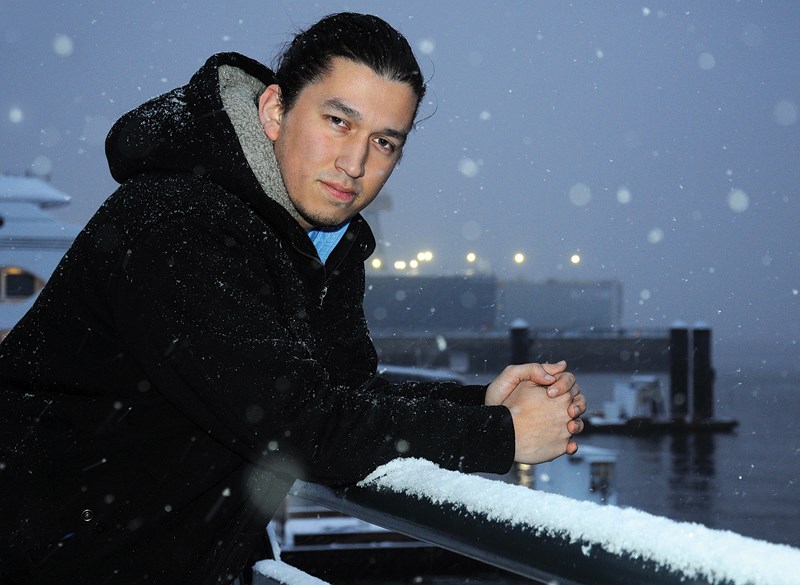The effort to revive the Squamish language from the brink is gaining steam, 15 speakers at a time.
The first cohort of students from the Temstl’i7 ta Sníchim language immersion class has completed their first year, emerging fluent enough to carry on everyday conversation. And the program is now accepting applicants for the next academic year starting this September.
The class was founded in partnership with SFU’s First Nations Language Centre by Squamish activist and educator Khelsilem when the number of fluent speakers of the language in the post-residential school era had fallen to single digits.
“If we have 30 people in the community speaking the language in the community, that’s going to be huge – 30 more people than we had two years ago,” he said.
The program, which is open to anyone with Squamish ancestry, includes roughly 900 hours of full-time classes at SFU’s downtown campus over the course of eight months.
Instruction is done in the Squamish language, with very little translation, starting from the very basics.
“They’re actually going to succeed. If they take this program, they’re going to become speakers of the language, which they might not have realized was possible before, and we do it in a way that’s fun and engaging. There’s a lot of laughter and it’s really a space that feels safe (in which) to learn a language,” Khelsilem said.
It also is an accredited university program that grants 30 academic credits that can count towards a bachelor’s degree.
Khelsilem is targeting people in their early 20s who are most likely to have children in the next 10 years – children who could potentially be the first in many generations to be raised in their own language. In time, Khelsilem said his goal is to have 10 per cent of his people speaking Squamish as their first language.
First-year graduate Charlene George said she was inspired to join the program after taking some classes in the Henqeminiem dialect with relatives from the Tsleil-Waututh Nation.
“I decided it was something I wanted for myself. I practice my culture a lot. I just knew it would bring a different aspect to the culture,” she said. In the big picture, that’s what Khelsilem is after.
As the elders perceived it, the Squamish people were losing their values like generosity and compassion the more they drifted away from their traditional ways, Khelsilem said.
“They felt that was because our language had started to disappear and that people weren’t speaking the language any more. If the language came back, those values would come back with and we see that. When people learn the language, they learn the culture and they learn how to treat each other differently, how to think differently and how to behave differently than what the English language gives us,” he said.
“The language gives us back a huge chunk of that and makes us stand tall again and makes us united in a way that I don’t think anything other than our language can grant us.”
Those now finished the first year of classes do feel a sense of pride and have earned a respect from the elders, George said.
“My grandfather was saying it was like seeing the language come full circle for him,” she said. “He said he’s seen the language go away and now he’s seeing it come back. So it’s not even just about our class and how it makes us feel, it’s also about the people around us and how it’s making them feel.”
The numbers are small, George concedes, but…“As small as that may seem, that’s a huge thing for our people.”
Applications can be submitted for the immersion program at kwiawtstelmexw.com/apply.
The deadline to apply is Feb. 13.



